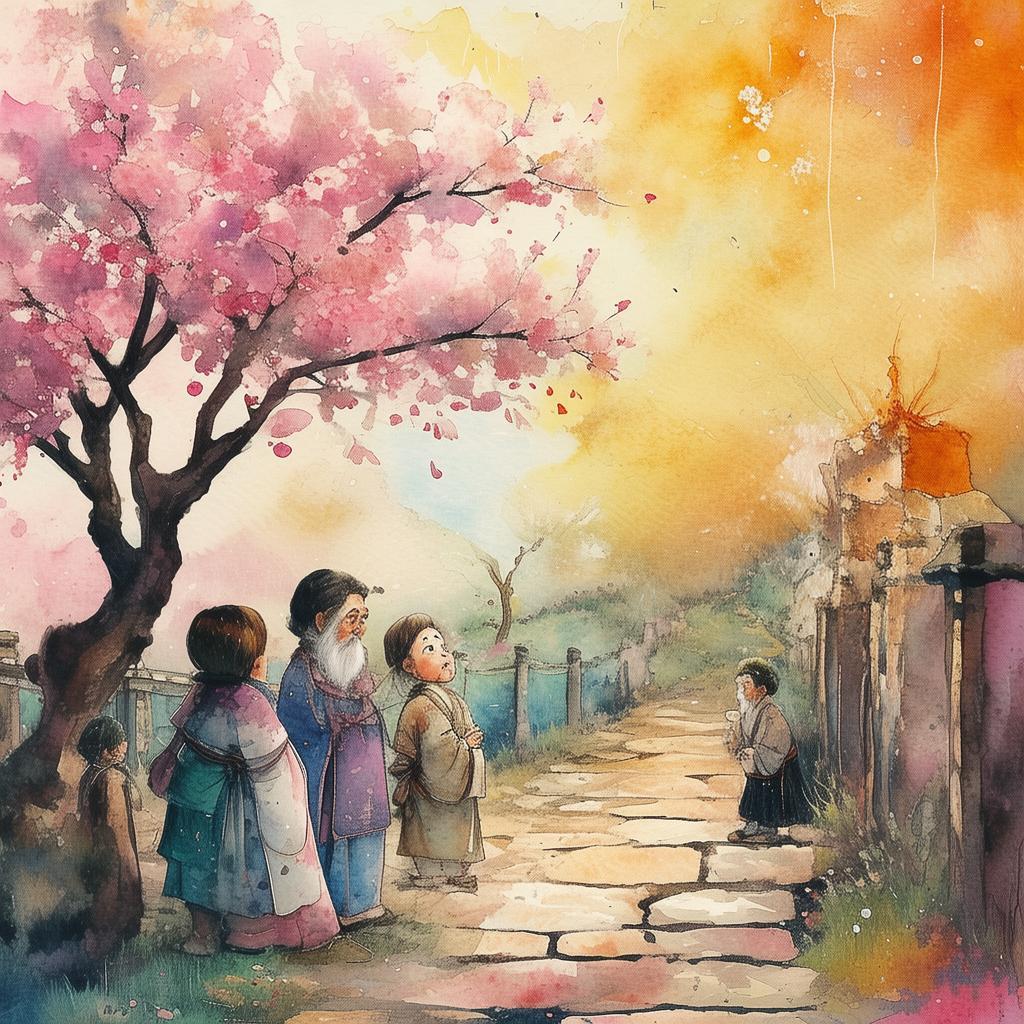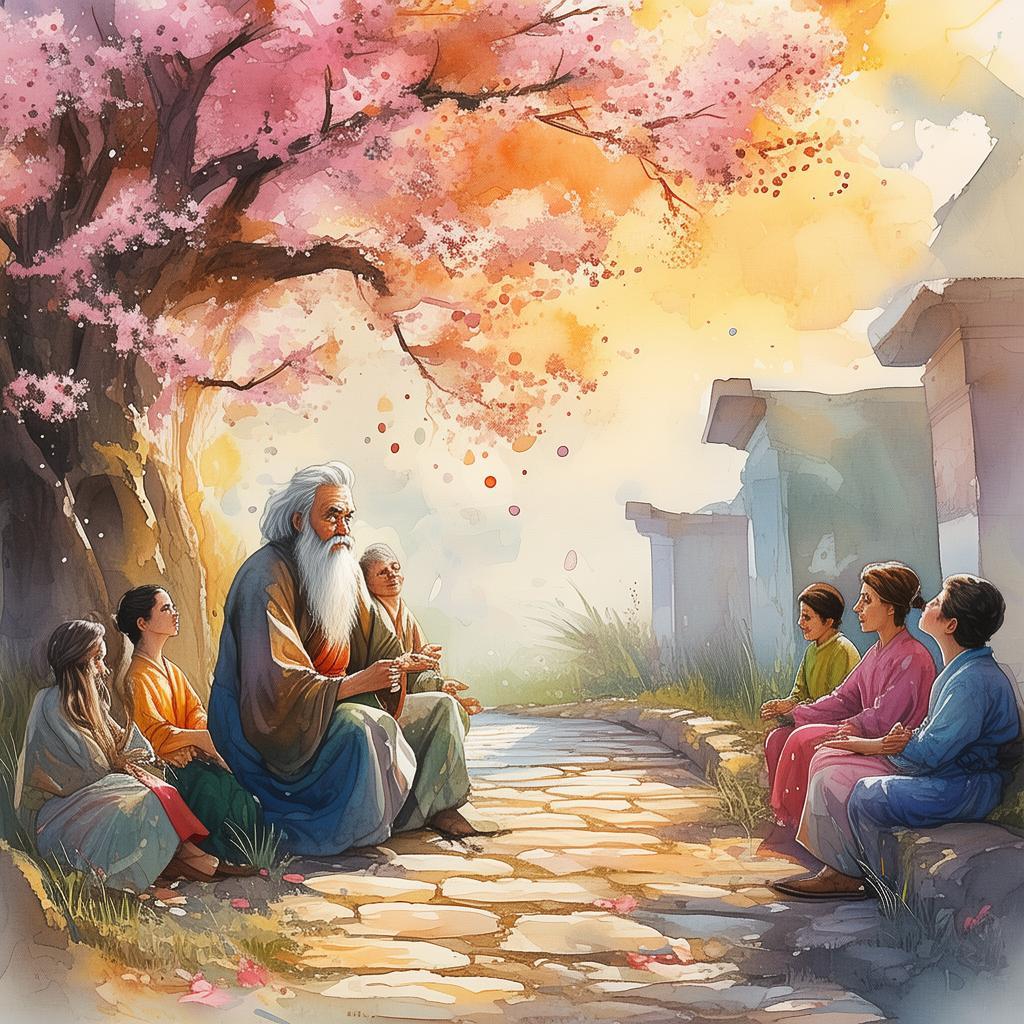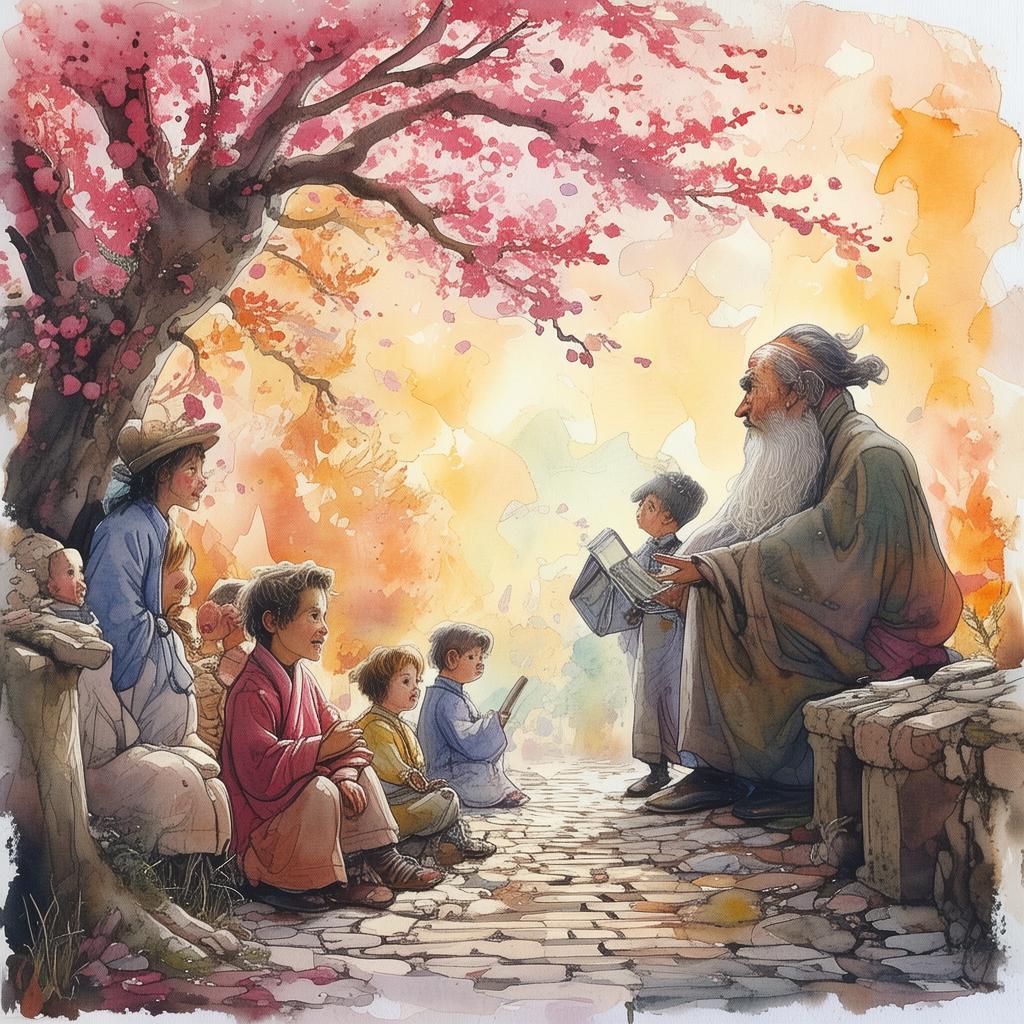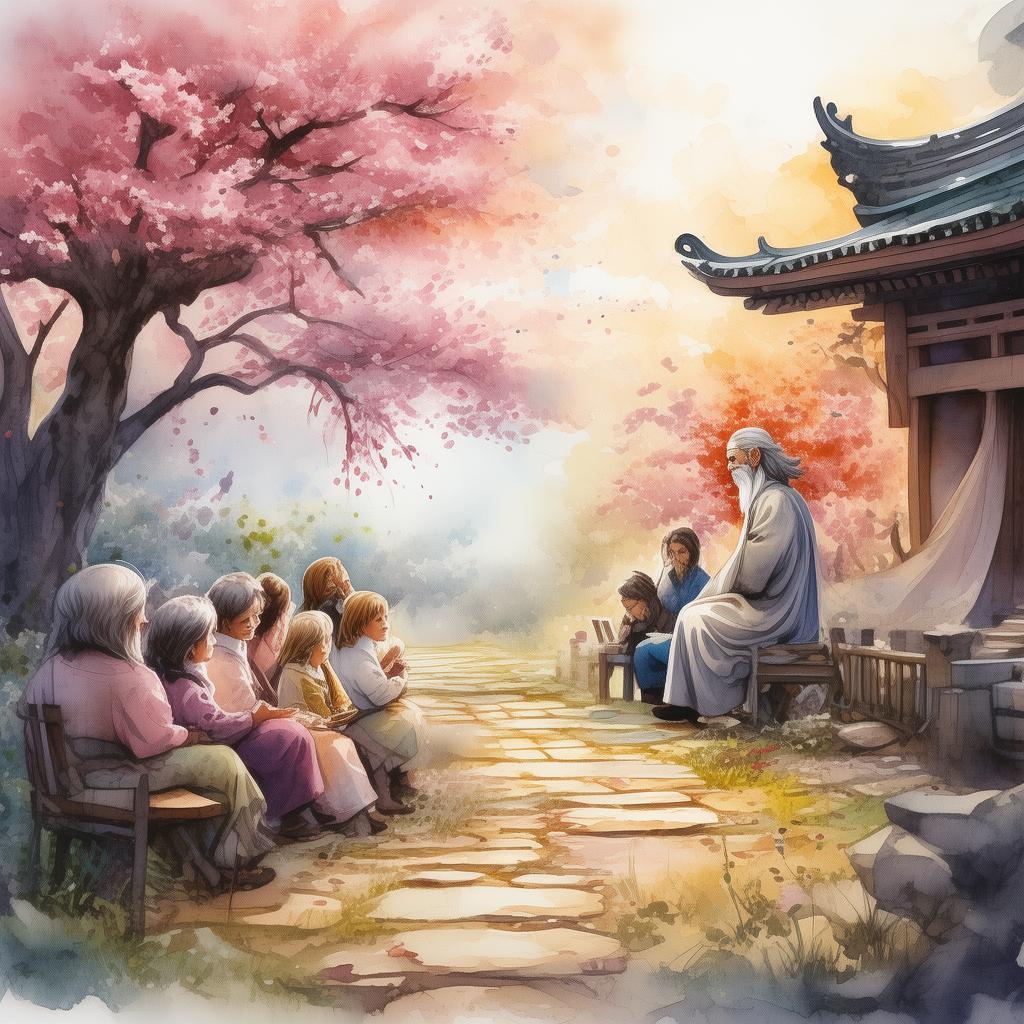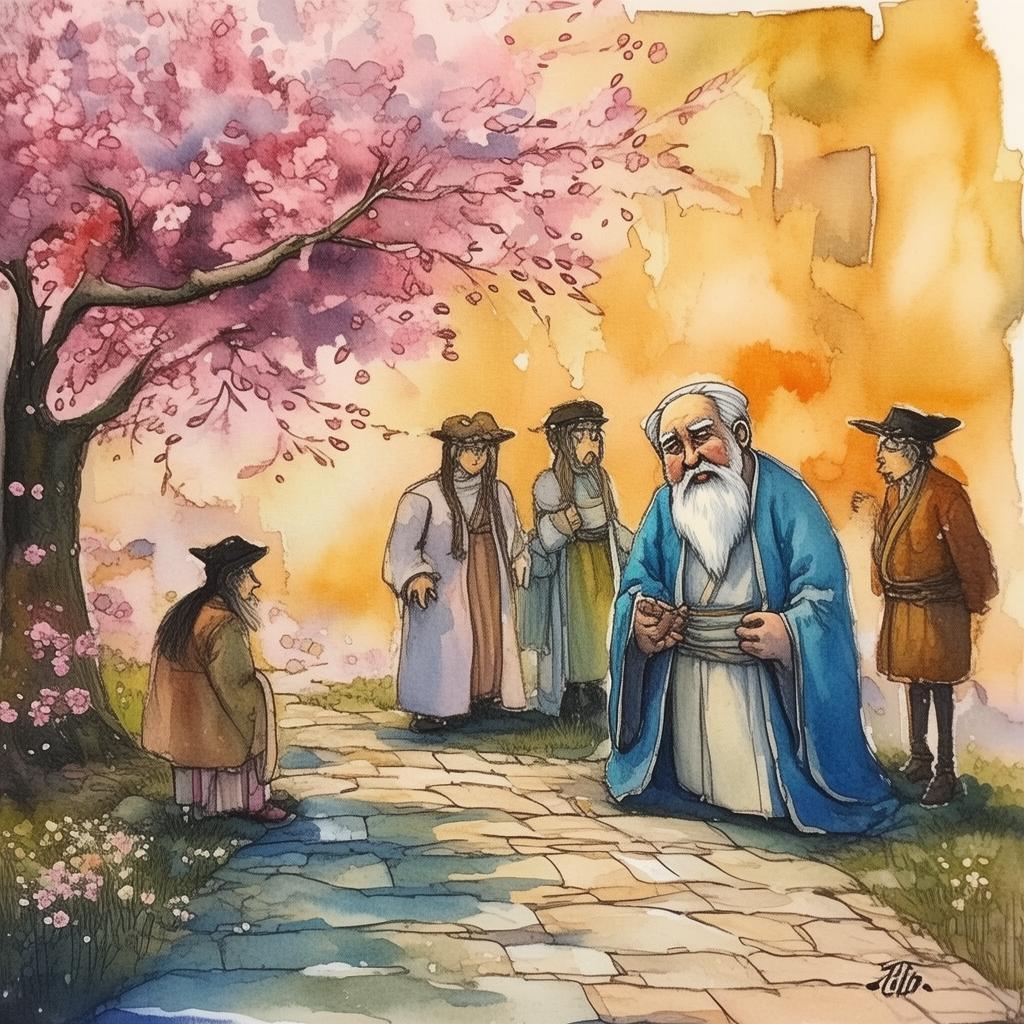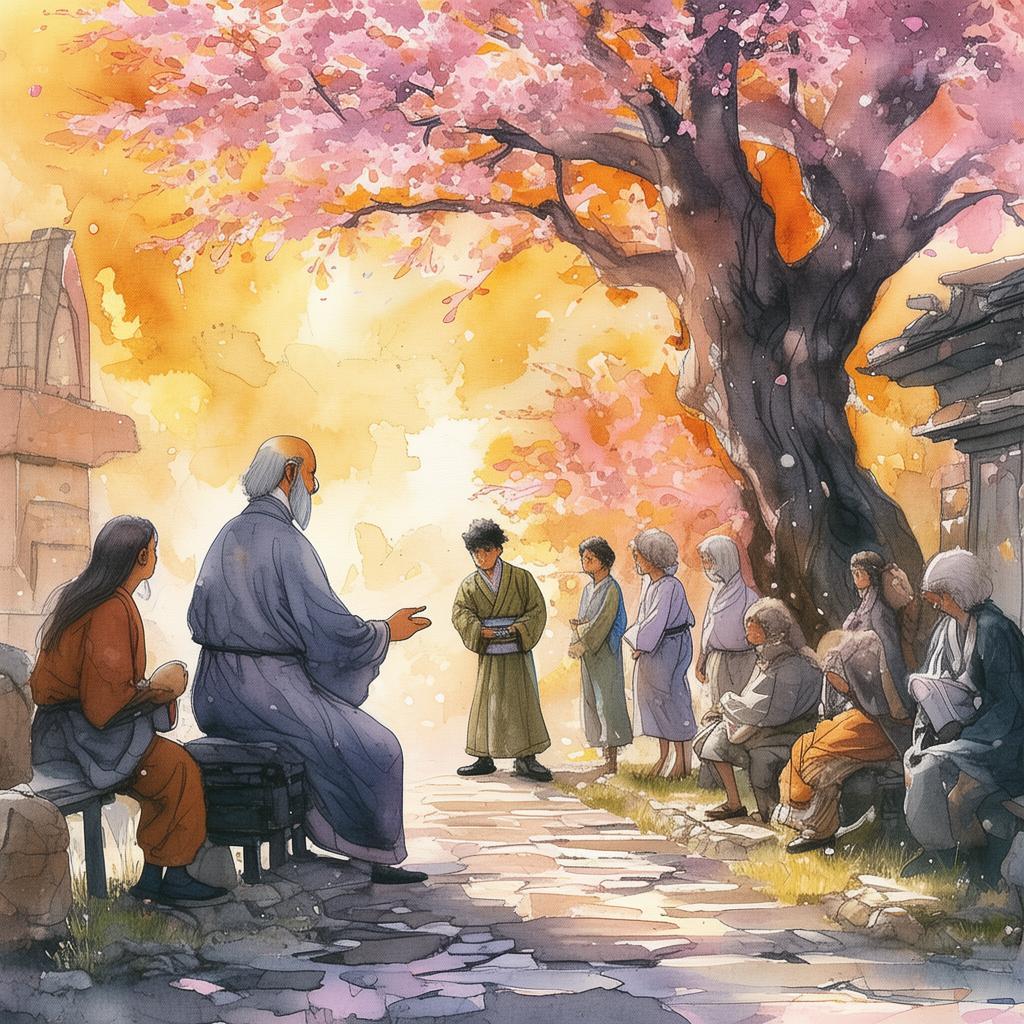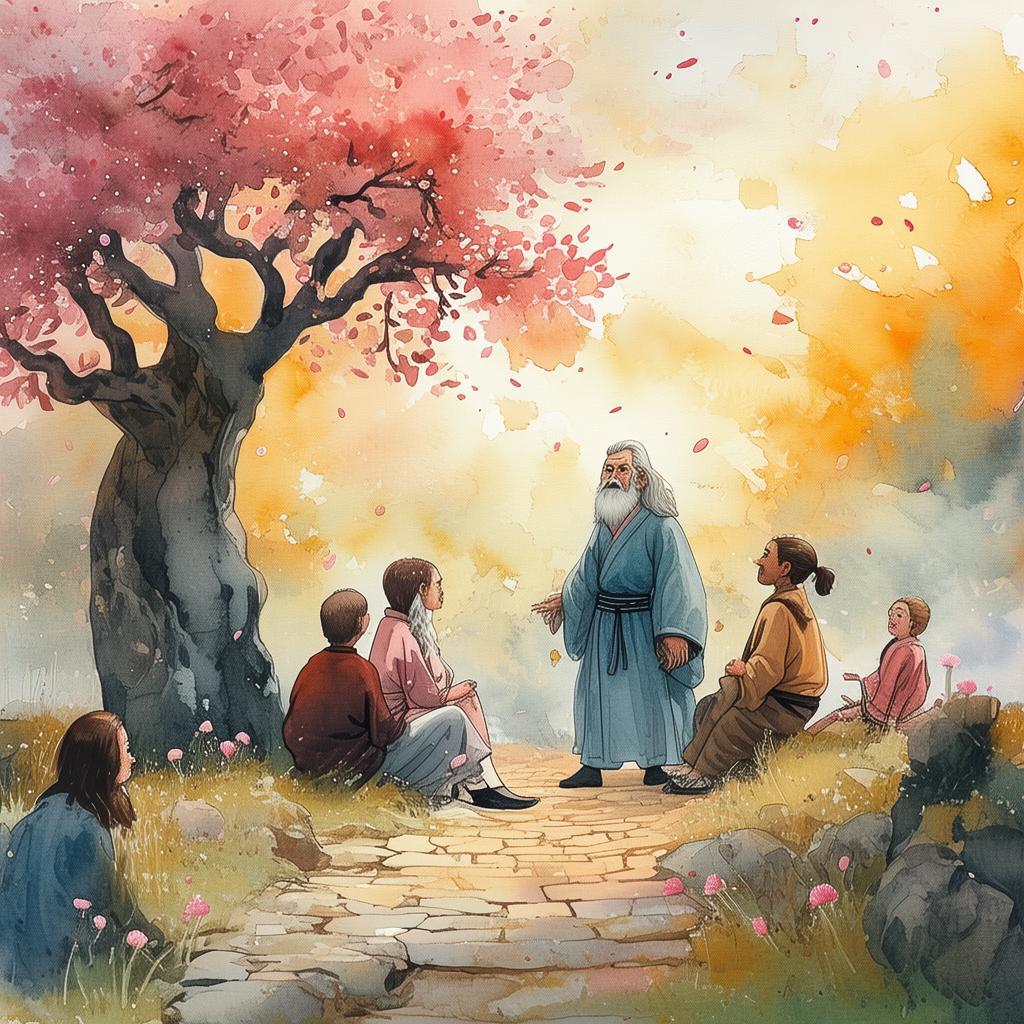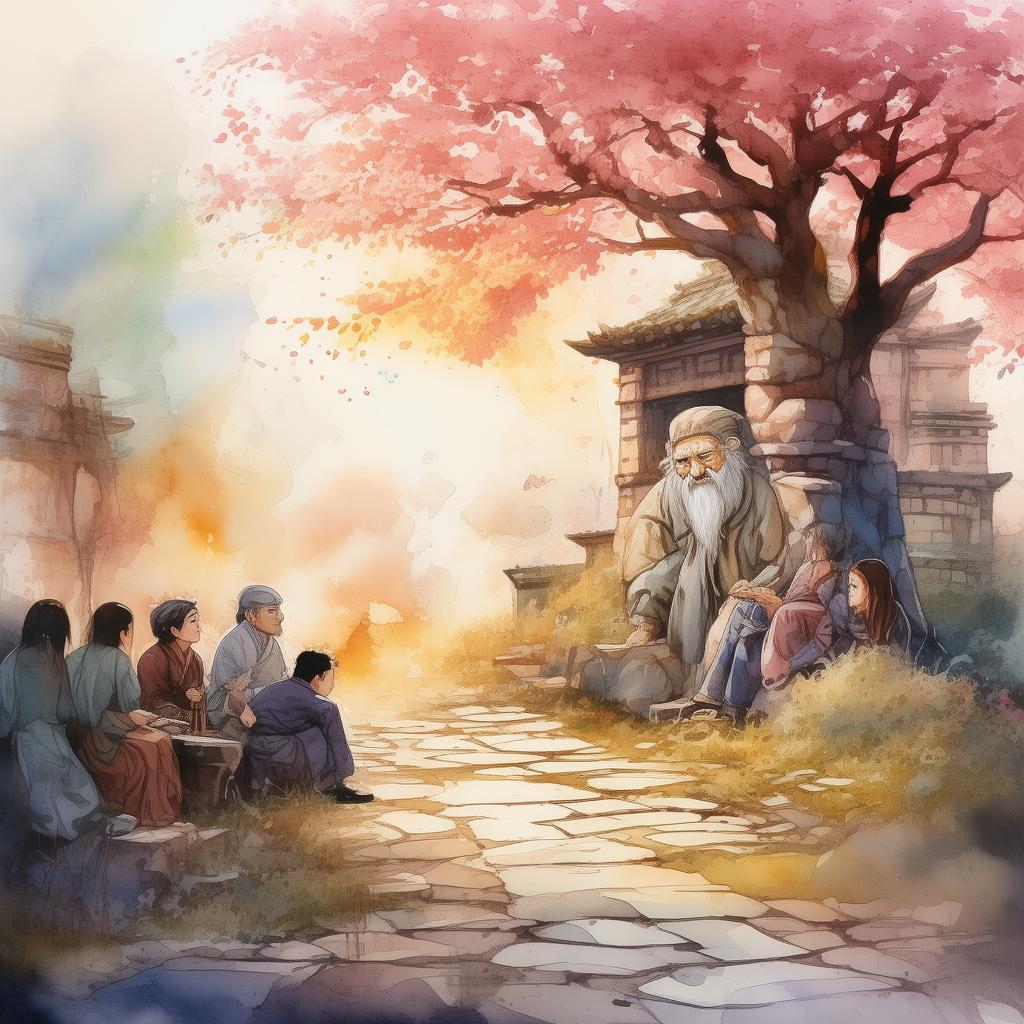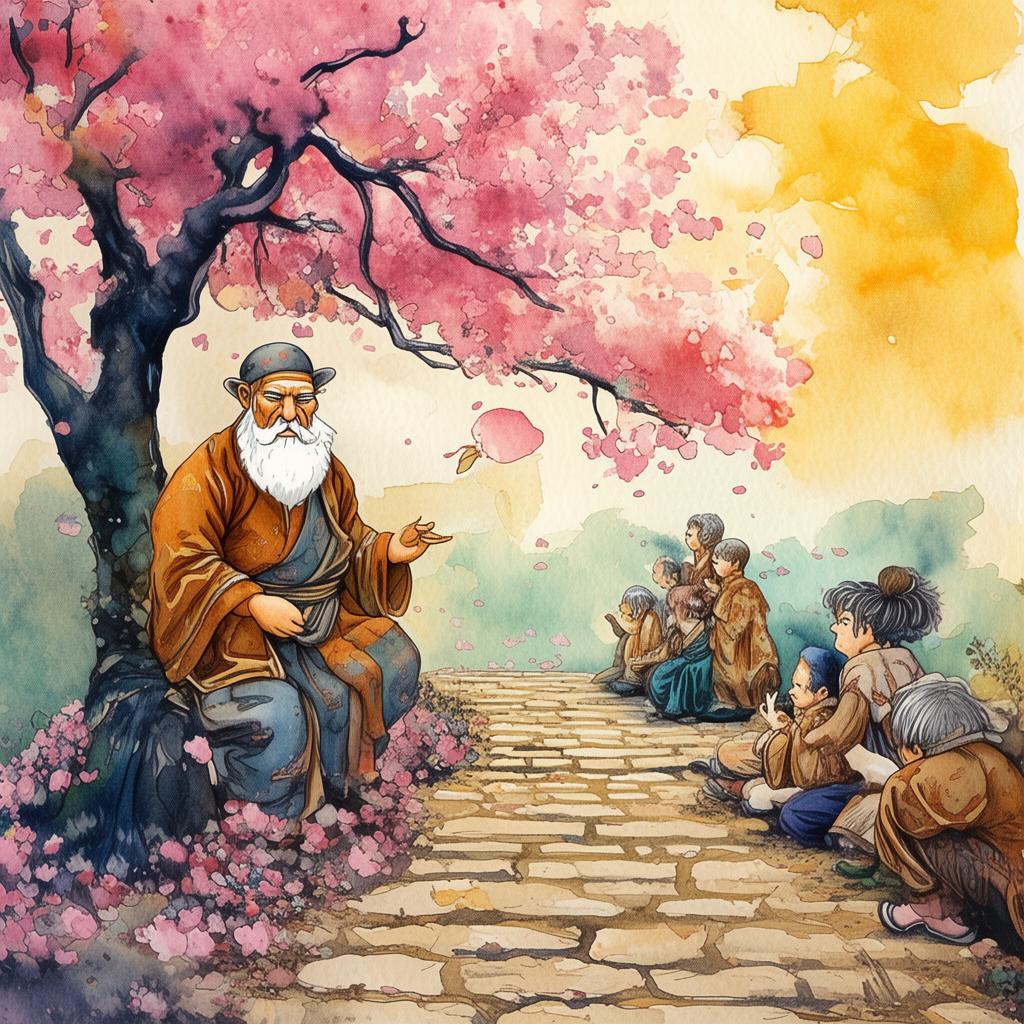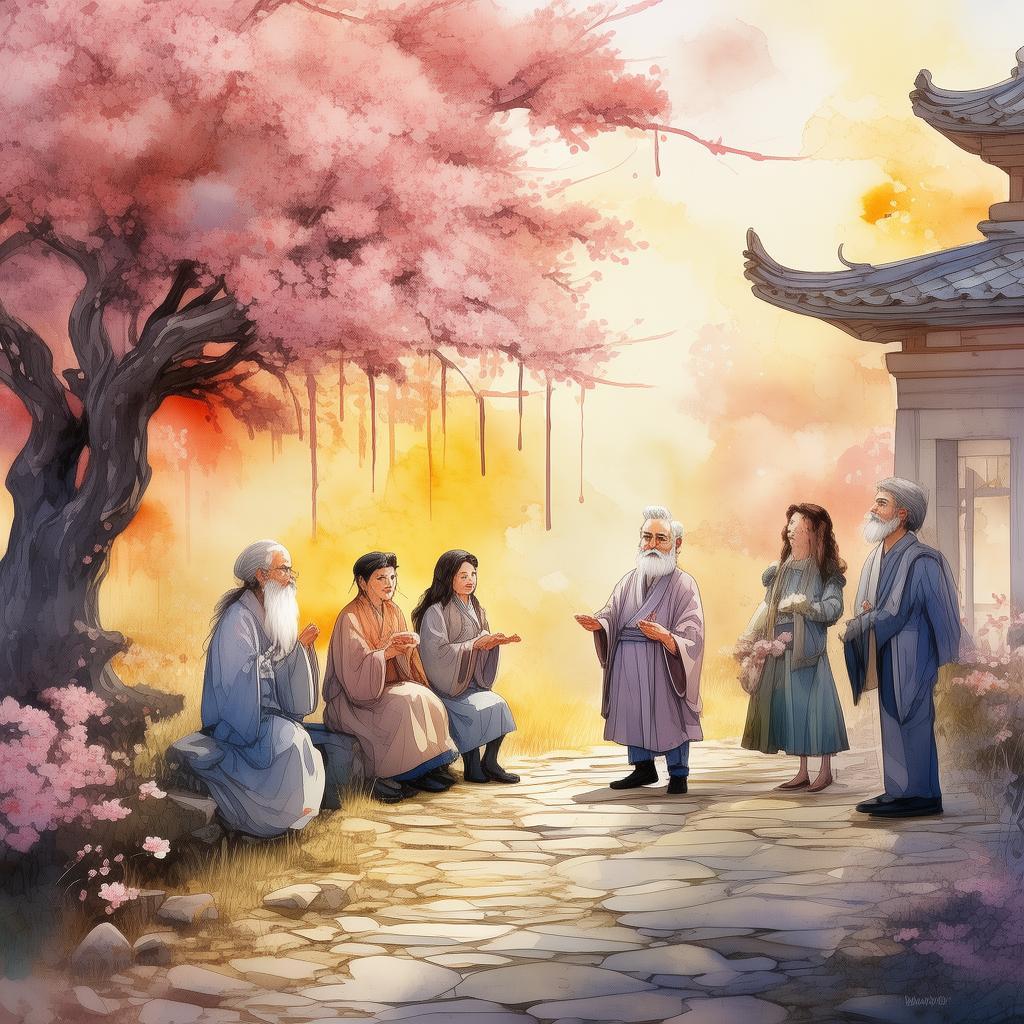The Chrono-Canvas Conundrum
In a world where the fabric of time is as malleable as the canvas of a painter, there exists a device known as the Chrono-Canvas. It is a magical artifact that allows its users to travel through time, witnessing events and learning from the past. The Time-Traveling Tutors, a group of wise and ancient beings, are the guardians of this powerful tool. They teach the lessons of history, the wisdom of the ages, and the consequences of one's actions.
In a small, bustling town of the year 2023, there lived a young and curious student named Ming. Ming was known for his insatiable thirst for knowledge, but he often found himself at odds with the wisdom of the elders. He believed that he could learn more through his own experiences than by listening to the stories of the past.
One day, while walking through the town square, Ming stumbled upon an old, weathered map. The map was unlike any he had seen before, with strange symbols and cryptic messages. Intrigued, he followed the map to an abandoned warehouse on the outskirts of town. Inside, he discovered the Chrono-Canvas, glowing with an ethereal light.
Ming's heart raced with excitement. He had heard whispers of the Time-Traveling Tutors and their teachings, but he had never imagined that he would find the Chrono-Canvas himself. He approached the artifact, and without hesitation, he placed his hand upon it.
Suddenly, the world around him blurred, and he found himself in a bustling marketplace of ancient China. Ming was surrounded by people in traditional attire, and he was immediately struck by the contrast between the past and his own time.
A figure emerged from the crowd, a wise old man with a long beard and piercing eyes. "Welcome, young Ming," he said. "I am Confucius, one of the Time-Traveling Tutors. You have found the Chrono-Canvas, and now it is your turn to learn the lessons of history."
Ming was awestruck but also apprehensive. "What lessons do you have for me, Master Confucius?"
Confucius smiled and gestured for Ming to follow him. "We will begin with a tale of wisdom and ignorance," he said. "Follow me."
They traveled to the court of the ancient Chinese emperor, where a young prince was about to make a decision that would change the course of his kingdom. The prince was faced with a dilemma: whether to execute a loyal minister who had been framed for treason or to spare his life and risk a civil war.
Ming watched in awe as the prince, guided by the wisdom of Confucius, chose to spare the minister's life. "Why did you make that choice?" Ming asked.
"The wise man knows that justice is more important than revenge," Confucius replied. "The kingdom will be stronger with a loyal minister than with a king consumed by his own anger."
Ming was deeply moved by the prince's decision. He realized that wisdom was not about accumulating knowledge but about understanding the moral implications of one's actions.
Confucius continued to guide Ming through various historical events, each one teaching him a valuable lesson. They witnessed the fall of the Roman Empire, the rise of the Renaissance, and the struggles of the Industrial Revolution. Ming learned about the importance of innovation, the value of compassion, and the consequences of neglecting the environment.
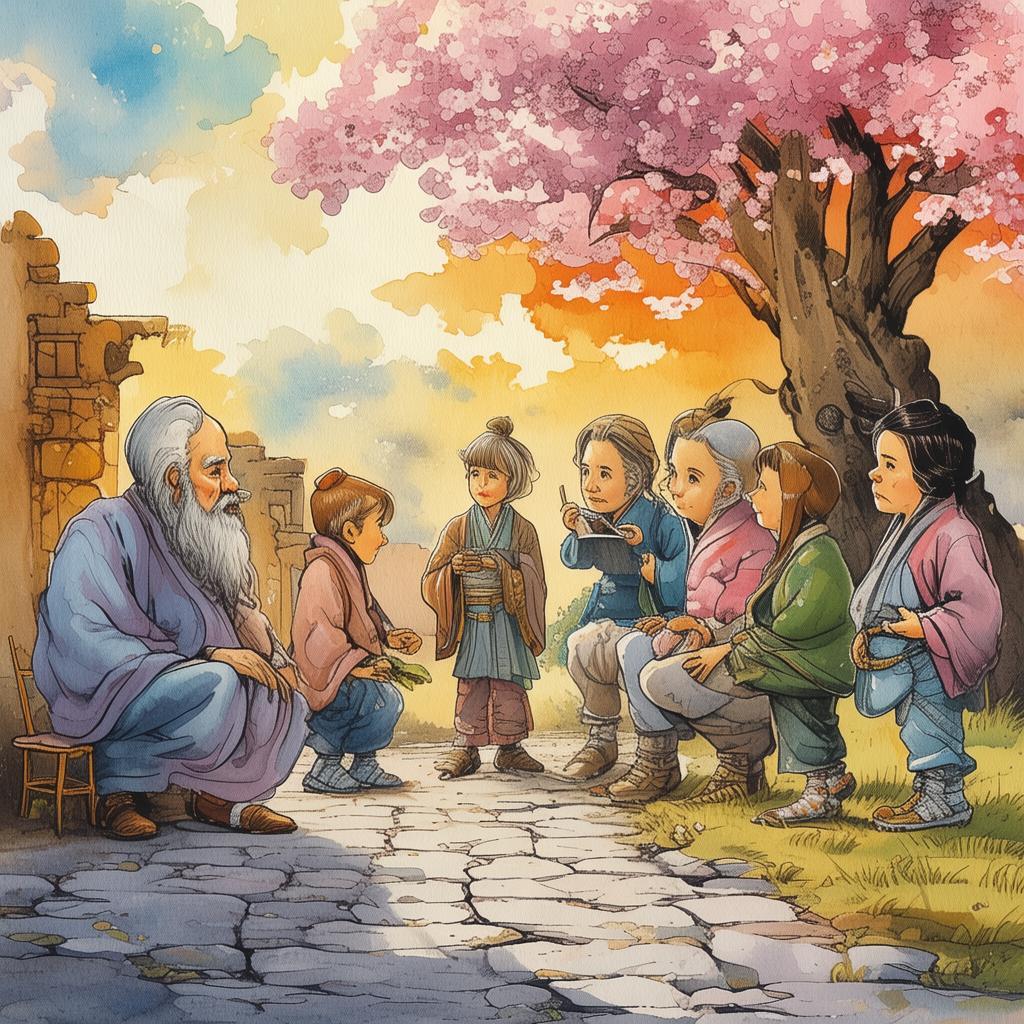
As the days passed, Ming's understanding of the world around him grew. He began to see the interconnectedness of all things and the impact that even the smallest decisions could have on the course of history.
One day, Confucius led Ming to a small village in the mountains. The villagers were facing a severe drought, and their crops were failing. Ming, with his newfound wisdom, suggested that they build a dam to store water for future use.
The villagers were skeptical at first, but Ming's determination and the wisdom he had gained from his travels convinced them to take action. They worked together, and soon the dam was completed. The village was saved, and Ming realized that wisdom was not just about understanding the past but also about applying that knowledge to improve the present.
As Ming's journey came to an end, Confucius approached him. "You have learned much, young Ming," he said. "Remember that wisdom is a journey, not a destination. It is about living with integrity and making decisions that benefit all."
Ming nodded, feeling a profound sense of fulfillment. He knew that he had changed, not just in his understanding of history, but in how he would live his life.
With a final glance at the Chrono-Canvas, Ming returned to his own time. He carried with him the lessons of history, the wisdom of the ages, and the knowledge that the future was in his hands.
The Chrono-Canvas Conundrum had taught Ming that wisdom was not just about accumulating knowledge but about understanding the moral implications of one's actions and applying that knowledge to improve the present and future.
✨ Original Statement ✨
All articles published on this website (including but not limited to text, images, videos, and other content) are original or authorized for reposting and are protected by relevant laws. Without the explicit written permission of this website, no individual or organization may copy, modify, repost, or use the content for commercial purposes.
If you need to quote or cooperate, please contact this site for authorization. We reserve the right to pursue legal responsibility for any unauthorized use.
Hereby declared.
